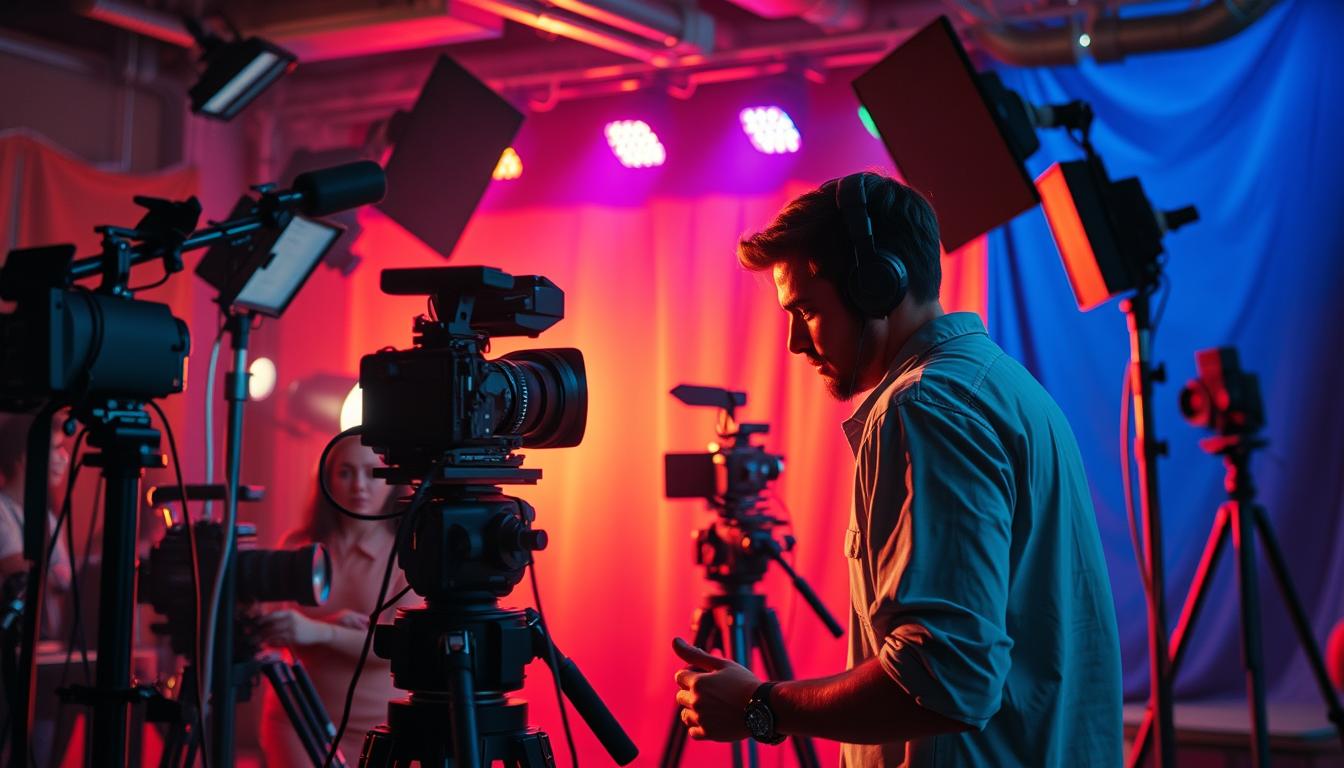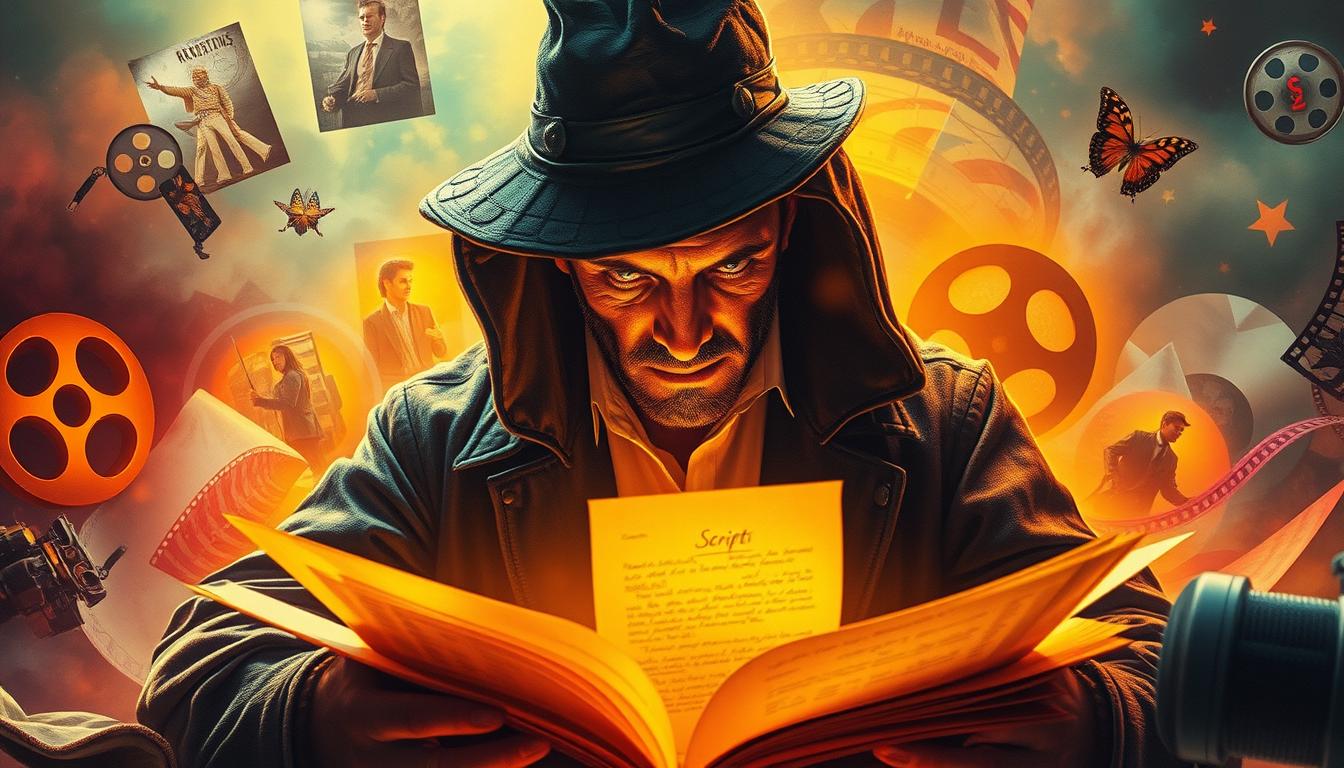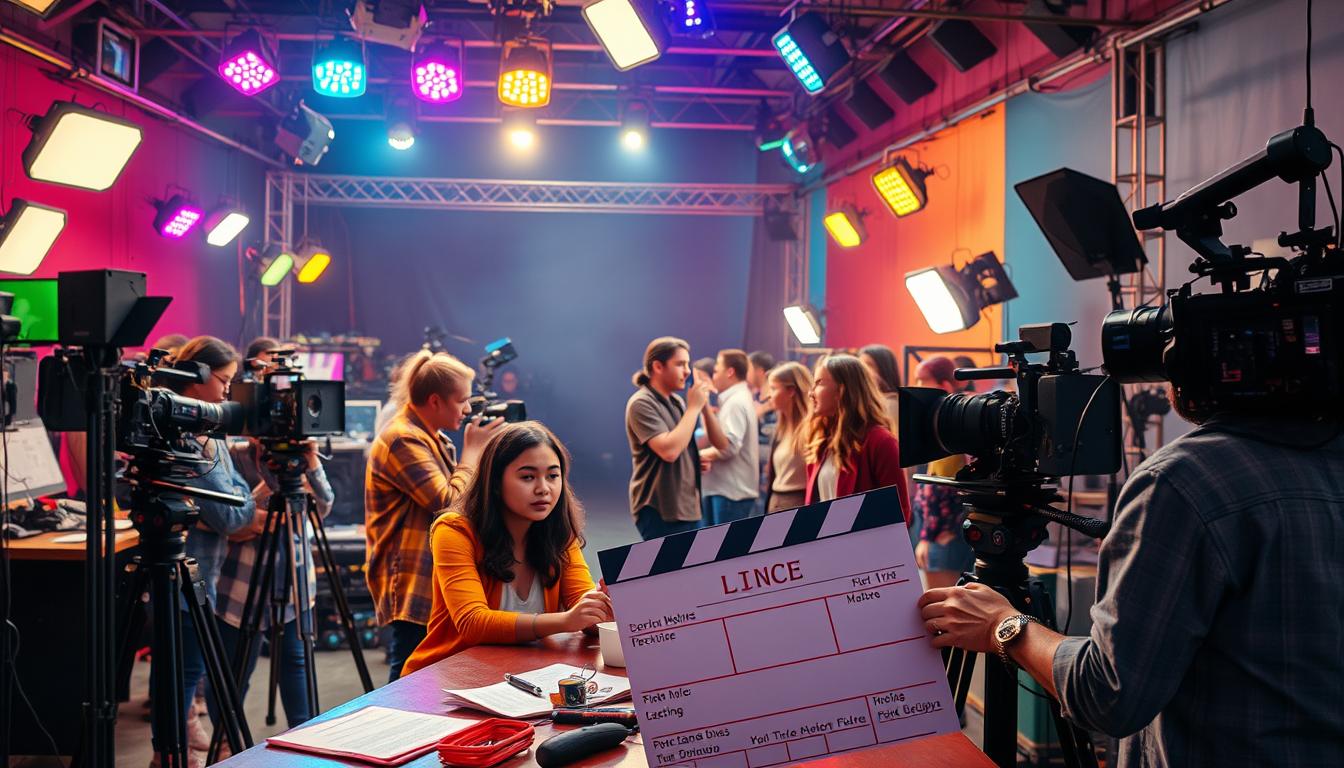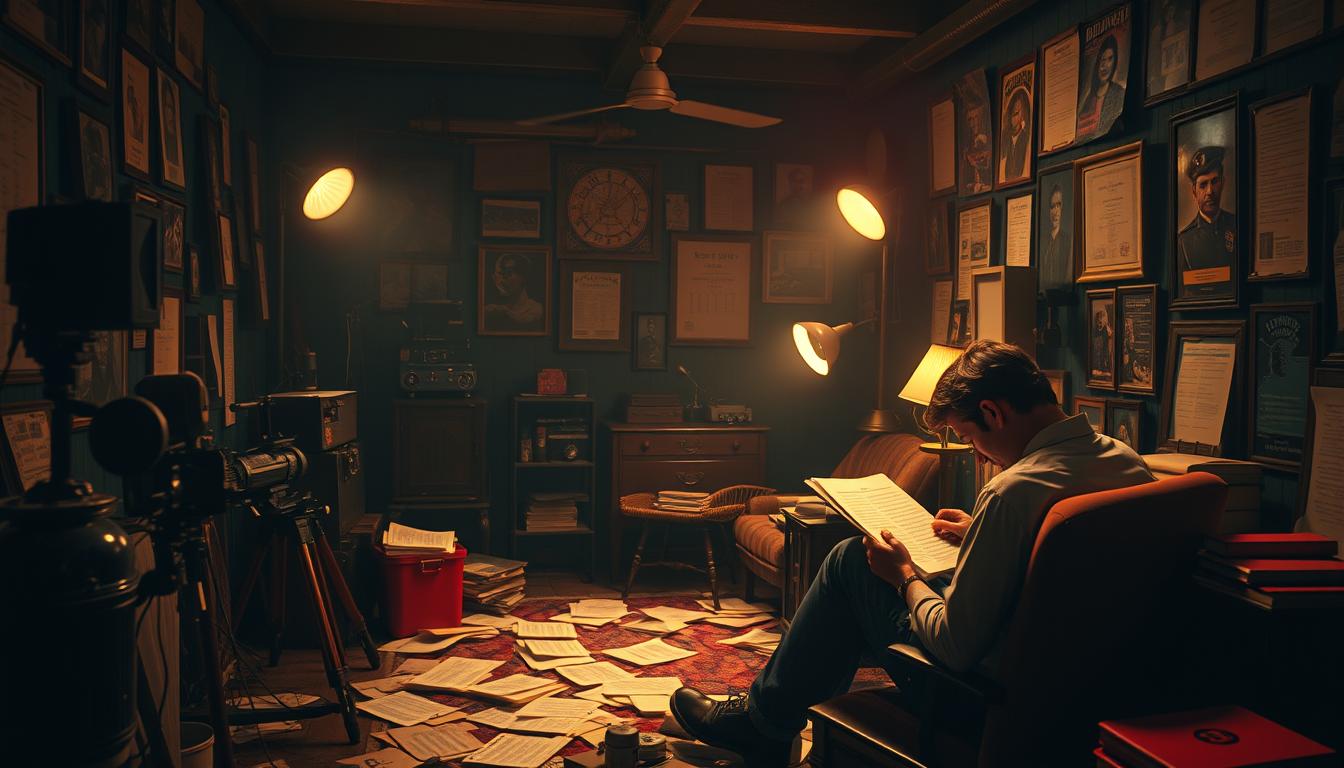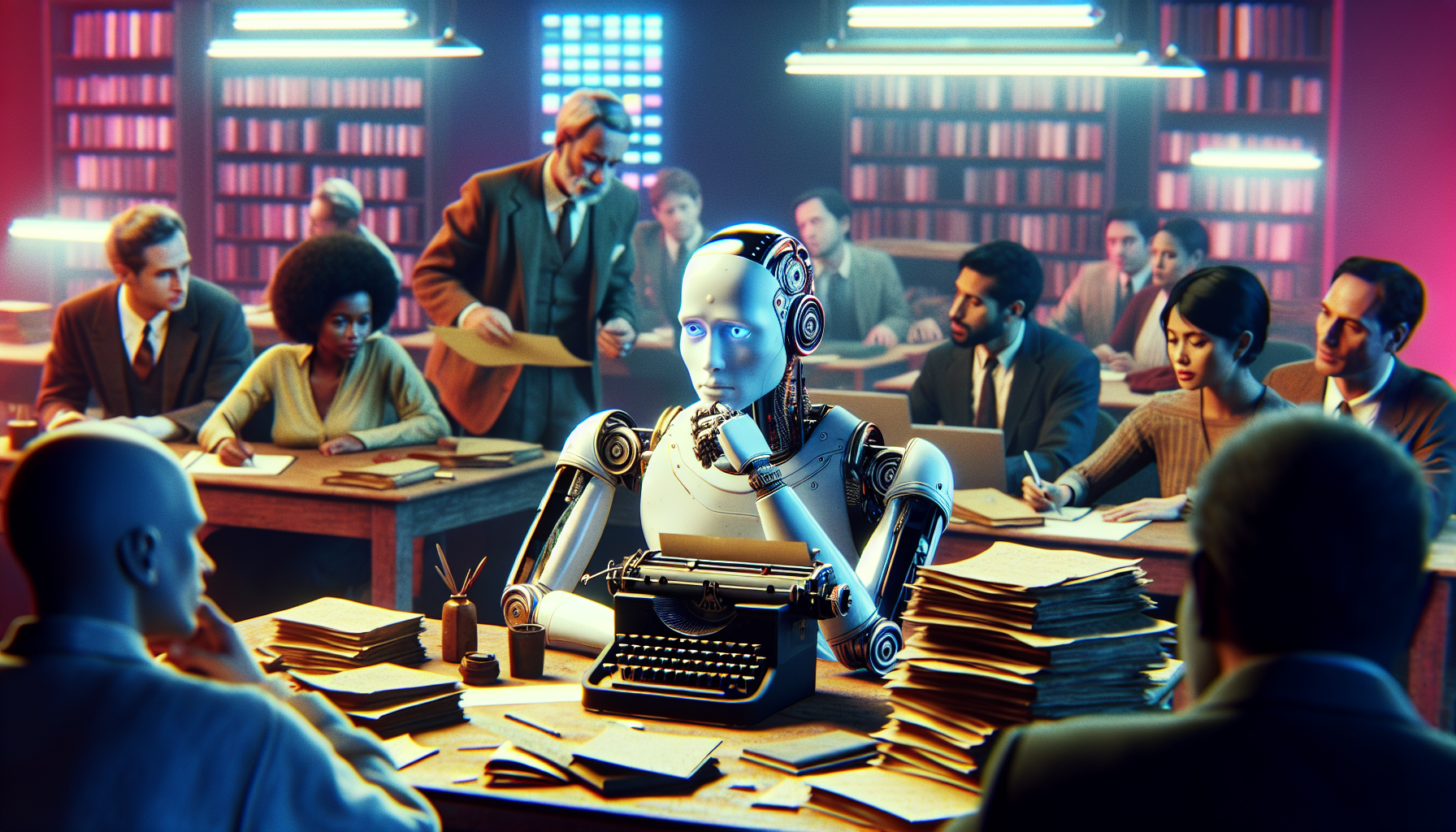
When Robots Try to Write Rom-Coms: The Limitations of AI in Screenwriting
If you’ve ever wondered whether your future screenwriting partner might be a robot, I’m here to sprinkle a little reality on that silicon-imbued daydream. Yes, Artificial Intelligence has been making leaps and bounds, infiltrating industries from healthcare to automotive to that annoying little vacuum robot that keeps bumping into your feet. But when it comes to the nuanced world of screenwriting, AI still has a few circuits to solder.
Scenario #1: Emotional Depth of a Teaspoon
One of AI’s most glaring faults in screenwriting is its often simplistic, sometimes downright juvenile grasp of human emotions. While it can effortlessly generate a thousand lines of dialogue in the time it takes you to microwave your popcorn, the emotional depth of these lines often matches that of a teaspoon. When characters in AI-generated scripts face life-altering dilemmas, they might deliver reactions suitable for someone who’s just misplaced their socks, not the nuanced despair you’d expect from Hamlet or Rose letting go of Jack in the icy Atlantic.
Plot Twists Predictable Than a Rerun of Friends
Let’s wheel over to plot construction. Again, AI can churn out scenarios faster than a caffeinated plot bunny, but the twists are often more predictable than a 1990s sitcom rerun. The ability of AI to take risks or introduce genuinely startling plot twists verges on the non-existent. It’s like asking a GPS to navigate the Serengeti without a map. You’re going to see lions, sure, but that’s because it’s the Serengeti, not because the GPS knew anything about your personal interest in big cats.
Dialogue That Makes Cardboard Look Good
Moving on to dialogue, which in the hands (or circuits) of AI often makes cardboard look positively Shakespearean. AI-generated characters tend to speak with the flair of a tax return instruction manual, making it incredibly tough for actors to deliver lines that are supposed to evoke tears, unless those tears are from sheer boredom. AI struggles with subtleties such as wit, sarcasm, and irony, which are often the spices that make movie lines come alive.
The Subtlety of a Steamroller
Nuance? Subtext? Forget it. AI’s approach to these subtleties is about as graceful as a steamroller paving a highway. In human-written screenplays, themes and motifs are woven subtly throughout the narrative, begging audiences to notice and appreciate them. AI, meanwhile, might just bluntly drop a theme into the conversation as subtly as a brick through a window. This leaves us with stories that feel disconnected and characters who seem to be reading a script handed to them seconds before the scene, which, technically, they are.
The Uncanny Valley of Character Development
Last but not least, let’s chat about character development, or in the case of AI, the often comical lack thereof. Human screenwriters can craft journeys that transform the janitor into a hero or the villain into a sympathizer. AI? It’s like watching a gymnast try to perform a complex routine after reading about it in a book and never practicing. The results are, predictably, both hilarious and tragic. AI-written characters are about as layered as a piece of single-ply toilet paper.
So, there you have it. While AI is revolutionizing many aspects of modern life, it might just be best to keep it away from the screenwriting gold of Hollywood…for now, anyway. Until AI can understand why You had me at ‘hello’ tugs at human heartstrings, your screenwriting dreams are safer in the hands of flesh-and-blood humans, complete with all their unpredictably glorious imagination.

